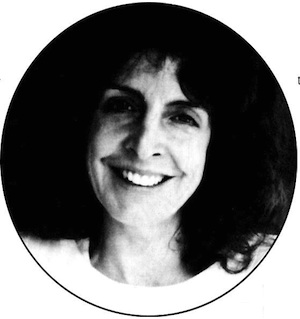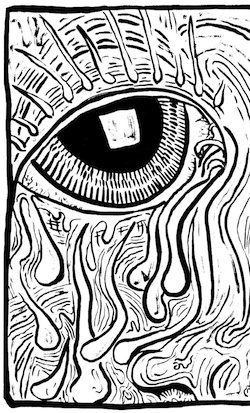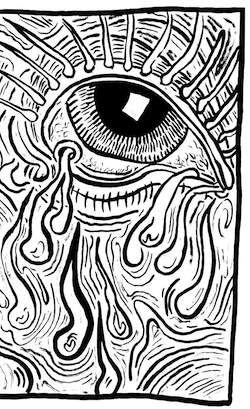
Michele McDonald-Smith has been a senior teacher at the Insight Meditation Society and guiding teacher at Vipassana Hawaii since 1982. She also has a sandplay therapy practice in Hawaii. This interview was conducted by Allan Hunt Badiner in May 1996.
Do you find yourself having to address the issue of psychedelic use in your teaching?
Yes. The drug issue is right on the front lines. As a meditation teacher, it takes a lot of reflection to present something that’s helpful and relevant in the face of how many choices young people have around drugs. From my experience, no matter what kind of deep opening one might have on a drug, it isn’t going to develop one’s ability to have those experiences naturally. Other people might say that drugs are a doorway, but I don’t see them as developing anything. They don’t develop equanimity, they don’t develop concentration, they don’t develop any of the factors of enlightenment.
What do you see drugs as doing?
Drugs take a considerable toll on the body and the mind. They bring all this energy into the system so that it catapults you into a different state of consciousness at the same time that it taxes your body, mind, and heart. You get a sort of beatific view, but actually you’re further down the mountain.
I’m quite concerned that young people are growing up in a very different world than my generation. They’re taking drugs at a much younger age, and many of the drugs they’re taking are street drugs which, at times, are dangerous and can kill people. Also the context of spiritual values and intimacy that was connected to the drug culture in our generation is lacking.
Do you think that applies across the board to all psychedelic experiences? Some people use MDMA, or ecstasy, in conjunction with their meditation, such as metta meditation, and claim that the openings that they get from this material translates into real change in their daily lives. Are they deluded?
The initial experience with that kind of drug might help one to experience their intention to develop lovingkindness, but the actual ability to access that on a regular basis takes practice. A drug can’t help you create or develop your ability to practice lovingkindness.
So the drug can’t get you there, but can it show you that there’s somewhere to go?
No. I don’t think that a drug experience from five years ago, or three hours ago is going to make metta accessible for me. A drug experience isn’t a way of life. It’s the willingness to put in the time through ordinary consciousness and develop your ability to practice deeply that allows you to access the mind of lovingkindness when you’re in traffic, or at the grocery store, or at the bank, or talking to your kids. To depend on a drug to develop that quality is antithetical to what we would call the development of Mind. So while drugs may spark an interest in those states of mind, one always has to assess the toll it takes on the body and the mind.

What has been your experience with people who use psychedelics?
I’ve had people come to retreats who’ve done a lot of drugs, and it seems like they don’t have the energy to access subtle stages of insight. They’ve blown it off with drugs. You pay a price for any drug experience. There’s no price that your body or mind has to pay to be in retreat and deepen those insights naturally.
So you feel that not only do drugs not help one along the path, they are actually a hindrance?
On the deepest level of letting go, drugs get in the way. This is especially true for those who are heavily armored.
What I hear you saying is the opposite of what some conservative Buddhists might say that if you’re heavily armored and you desperately need an opening, well then, and only then, it might be OK to use a psychedelic. But what you are saying is avoid drugs “particularly” then, because they will increase your already strong resistance to doing the hard work.
Right. I’m talking about a deep level of attachment in the mind, where if one is needing to repeat an experience, it is reinforcing the force of that attachment. When a person feels that they need drugs to go deeper in their spiritual journey, they’re just reinforcing the attachment to those particular states of consciousness and the need to get them back again.
How is that different from attachment to the state that one reaches in meditation?
In a retreat you’re going through sleepiness, restlessness, you’re not aiming to maintain a certain state. At least in vipassana practice, which is what I teach, it’s not state-oriented. The idea is that freedom isn’t based on any experience, so you’re developing an awareness that isn’t imprisoned by being attached to certain experiences. When you take a drug you’re definitely attached to experience, or you wouldn’t be taking the drug.
Have you had personal experience with psychedelics?
I can say that I’ve had some experiences that were fun as well as spiritual on drugs.
But you don’t recommend them?
I don’t. While I did have some very intense experiences on drugs, I’ve had much deeper experiences and more liberating insights in meditation. When I tried psychedelics I was just interested in what my friends were up to. But when I went on my first meditation retreat in 1975, I realized that we can all put in the work of going into retreat. You’re still going to open up, and it doesn’t take such a toll. And it’s much more dependable in the long run. I recommend doing the work.
So you didn’t get attached?
No. I do feel that drugs promote attachment to peak experience. In terms of my idea of what liberation is, they make that deeper letting go of experience itself harder. I really saw this in my own practice.

Would you say more about the distinction between the psychedelic high and the meditation high?
Meditation strengthens your ability to work with the ups and downs of life so that you’re not identified with being depressed, or with being tired, and you’re developing an equanimity and an awareness that helps you be more fully with the downs as well as the ups. In taking the meditative path, you will come out stronger and win in all ways. You learn that you can feel “high” and you learn how to access that feeling when you create the right conditions.
But what you actually get from drug experience is the desire to take the drugs again. The basic urge is to be free; but true freedom is awareness that isn’t tied to experience. The underlying urge is healthy. I really try to support that urge. But drugs don’t make it easier to liberate ourselves in the long run.
Why do you think so many people feel like psychedelics help?
It can feel like drugs are helping. But each breath that we’re really aware of, day by day, in ordinary life, each step we take with awareness will in some ways feel very ordinary initially, but through it we are cultivating true freedom. You can develop great awareness without drugs. We have twenty-four hours in the day, and there are a lot of moments while we’re washing the dishes, while we’re driving the car, that we can practice being aware. When we’re on retreat we intensify the practice, while we’re watching the breath, while we’re watching our steps. And we learn through this sometimes incredibly tedious repetition how to have an awareness that’s free of attachment to any one experience. Any attempt to escape that, or to avoid putting in that time just sets you back. In the long run the very attempt itself to escape makes it harder to be free.
♦
This interview is from the Tricycle 1996 special section Psychedelics: Help or Hindrance?
Thank you for subscribing to Tricycle! As a nonprofit, we depend on readers like you to keep Buddhist teachings and practices widely available.